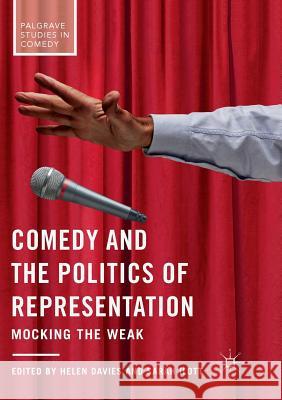Comedy and the Politics of Representation: Mocking the Weak » książka
topmenu
Comedy and the Politics of Representation: Mocking the Weak
ISBN-13: 9783030080297 / Angielski / Miękka / 2019 / 262 str.
Kategorie:
Kategorie BISAC:
Wydawca:
Palgrave MacMillan
Seria wydawnicza:
Język:
Angielski
ISBN-13:
9783030080297
Rok wydania:
2019
Wydanie:
Softcover Repri
Numer serii:
000798265
Ilość stron:
262
Waga:
0.33 kg
Wymiary:
21.01 x 14.81 x 1.47
Oprawa:
Miękka
Wolumenów:
01
Dodatkowe informacje:
Wydanie ilustrowane











